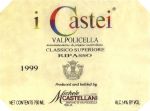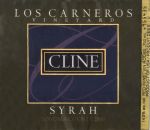![]()
Recent Articles

Get
all the evaluations for
the November
Release
Subscribe
to Vintage Assessments today
by Clicking
Here
This
not-for-profit website is dedicated to the discerning reader!
Calvados
- a perfect way to get
your apple a day!
National Post Weekly Wine & Spirits Columnist
Saturday, October 11, 2003
winefind.ca
If you want to buy a wine, just click on the wine name
below and you will instantaneously connected with the LCBO database. The wine
name will appear in blue and all you have to do is click on the name again and then the next screen will provide
details along with the store search. Just click on the
search. The number of bottles in each store is updated nightly.
You should call the store first to see if stock still remains (each store
phone number is provided).

 By
Thanksgiving most apples have reached their pinnacle and patiently waiting
to be devoured. Of course, there is more than one way to get your apple a
day. I am sitting with world ambassador Vincent
Boulard whose family founded Calvados Boulard five generations
ago in the north-west French region of Normandy. He insists that I try his
Boulard
Calvados Pays d’Auge Grand Solage (LCBO general
list 296228 at $42.55) on crushed ice.
By
Thanksgiving most apples have reached their pinnacle and patiently waiting
to be devoured. Of course, there is more than one way to get your apple a
day. I am sitting with world ambassador Vincent
Boulard whose family founded Calvados Boulard five generations
ago in the north-west French region of Normandy. He insists that I try his
Boulard
Calvados Pays d’Auge Grand Solage (LCBO general
list 296228 at $42.55) on crushed ice.
It’s not my normal preprandial. I sniff it with an air of suspicion.
It’s got a great nose - fresh ripe red apples and a hint of pear!
Although there is no sugar in this 40% spirit, it seems slightly sweet
from its intense natural apple flavours. It’s well balanced and
surprisingly seductive. “What
better way to enjoy a bracingly cool fall day,” says Vincent with a
twinkle in his eye.
Whether it’s mixed with ginger ale or tonic, I feel hooked like a
flounder. Mr. Boulard goes on to add that “there
is Calvados and then there is Calvados Pays d’Auge!” French
regulations for the later were established in 1942 and are extremely
tight. The cider must be made from specific apples only grown in the
delineated Pays d’Auge orchards. It must then be double distilled in a
classic pot still. All flavourings and the addition of neutral grain
spirit are prohibited. Like Cognac, a great Calvados will usually be blend
of fine spirits aged in oak barrels for many years. Only the date of the
youngest spirit may be mentioned on the label. I am surprised that
Calvados Pays d’Auge is subject to even more stringent aging regulations
than Cognac.
The results speak for themselves. “It
starts with the selection of apples - did you know that there are some 800
varieties of apples?” asks Boulard. I am perplexed. “Good grief,” I think - “I know the names of half a dozen or so,
but none are grown for Calvados production.” Boulard’s secret
blend consists of some 120 varieties from four major apple families, which
are harvested from some 35,000 company-owned trees.
I start getting misty eyed as he reels off details
on the role of each type of apple – it’s more information that I can
digest. I am impressed, however, that it takes 12 kilos of apples or 10.5
litres of cider, to produce a single bottle of Calvados. “Well,
there’s my ten apples today!” I think to myself.
Tracking down the best of Boulard isn’t easy. The LCBO has been
extremely stingy with its listings meaning that customers have to contact
the Canadian agent Peter
Mielzynski (905-820-4117). I am shocked to discover that there
are five levels above the Grand Solage. The XO
($91.30), which carries a minimum 6-year age requirement, actually gets 8
years at Boulard. The Très Grande Fine
Hor’s d’Age ($92.00),
averages at 15-years and has 43% alcohol Then there is the wonderful Founder’s
Reserve ($174.90), which is a blend of 12 to 20-year-old, comes in a decanter and
should be served in a snifter. Finally, there is Carafe 21 Ans d’Age ($212.00) a 21
to 25+ year old casks and Millésimé
($194.00), which are made from single barrels of vintage-dated Calvados.
If you happen to be planning to pick up a bottle of Boulard this
weekend, you might want to try a robust apple Calvados stuffing for your
turkey. The farce de dinde aux
pommes et au Calvados recipe is posted on my website along with a few
drink ideas.
 Moving
on, one reader wished to know if Canada’s
largest selling red, Wolf Blass
Yellow Label Cabernet Sauvignon would go well with turkey. I think
that you might find it to be excessively oaky. A much better match would
be Beringer
2001 Zinfandel (567453),
which has enough harmonious, fresh, cranberry-cassis tinged, juicy, ripe,
cherry flavours to carry my carcass to poultry heaven. It was released in
last Saturday’s Vintages release at $15.50. Look for the lot number
0523314L1, which appears on the back label.
Moving
on, one reader wished to know if Canada’s
largest selling red, Wolf Blass
Yellow Label Cabernet Sauvignon would go well with turkey. I think
that you might find it to be excessively oaky. A much better match would
be Beringer
2001 Zinfandel (567453),
which has enough harmonious, fresh, cranberry-cassis tinged, juicy, ripe,
cherry flavours to carry my carcass to poultry heaven. It was released in
last Saturday’s Vintages release at $15.50. Look for the lot number
0523314L1, which appears on the back label.
 If
you are eschewing turkey, opting for a rib steak instead, another
tremendous October Vintages best buy is the complex, ripe and juicy Castellani
1999 ‘I Castei’
Valpolicella Classico Ripasso
(739987) at $23.65. The nose is very intense, complex and cedary with
wonderful ripe plum purée and lifted mellow, earthy-balsamic notes. On
the palate you will a find delicious, juicy plum and prune purée flavours
followed up by a lingering finish. Although at its peak, it is much
tastier than some Italian reds costing twice the price!
If
you are eschewing turkey, opting for a rib steak instead, another
tremendous October Vintages best buy is the complex, ripe and juicy Castellani
1999 ‘I Castei’
Valpolicella Classico Ripasso
(739987) at $23.65. The nose is very intense, complex and cedary with
wonderful ripe plum purée and lifted mellow, earthy-balsamic notes. On
the palate you will a find delicious, juicy plum and prune purée flavours
followed up by a lingering finish. Although at its peak, it is much
tastier than some Italian reds costing twice the price!
 Last
but not least, telephone ordering for the Autumn 2003 Classics commences
at 9 am on Tuesday, October 21st. Of the 406 items, 37 are
repeats. I have tasted some four-dozen items and, unfortunately, was not
overly impressed by many. Nevertheless, there are a few very fine buys.
One of my favourites is Cline
2000 Syrah Los Carneros Vineyard (955435) a steal at
$29. It has a very deep intense purple colour and extremely appealing,
spicy, cedary, juicy ripe black cherry nose. On the palate it is rich,
extracty and mouthfilling with juicy ripe black cherry fruit and lots of
cedary notes on the lingering finish. Some 600 bottles were acquired by
Vintages.
Last
but not least, telephone ordering for the Autumn 2003 Classics commences
at 9 am on Tuesday, October 21st. Of the 406 items, 37 are
repeats. I have tasted some four-dozen items and, unfortunately, was not
overly impressed by many. Nevertheless, there are a few very fine buys.
One of my favourites is Cline
2000 Syrah Los Carneros Vineyard (955435) a steal at
$29. It has a very deep intense purple colour and extremely appealing,
spicy, cedary, juicy ripe black cherry nose. On the palate it is rich,
extracty and mouthfilling with juicy ripe black cherry fruit and lots of
cedary notes on the lingering finish. Some 600 bottles were acquired by
Vintages.
Check
out our winefind.ca tasting notes database
Our tasting note database goes back to January 1, 2001 and covers every Vintages release product for the past 31 months. There are approximately 5,000 notes in the database data. Just enter the name of the product, supplier name or CSPC number. Or you can search by type of wine, country of origin, even wine agent! Nothing could be easier. When you get your search results (starting with the most recent release), click on the item name and you will instantaneously connected to the FBTI Vintage Assessments database. You will see our tasting note along with the name of the agent. You can get information on the agent by clicking on the agent’s name. Also, you can check LCBO store inventory by clicking on Check LCBO Availability. It will automatically take you to the item you want to search.
To use our winefind.ca Tasting Notes Database: click here
Subscribe to Vintage Assessments Today • Click Here
|
Vintages November 2003 Release
|
Copyright Food & Beverage Testing Institute of Canada
2004
Prior written permission is required for any form of reproduction
(electronic or other wise) and or quotation.
Contact Michael Vaughan at
mbv@total.net